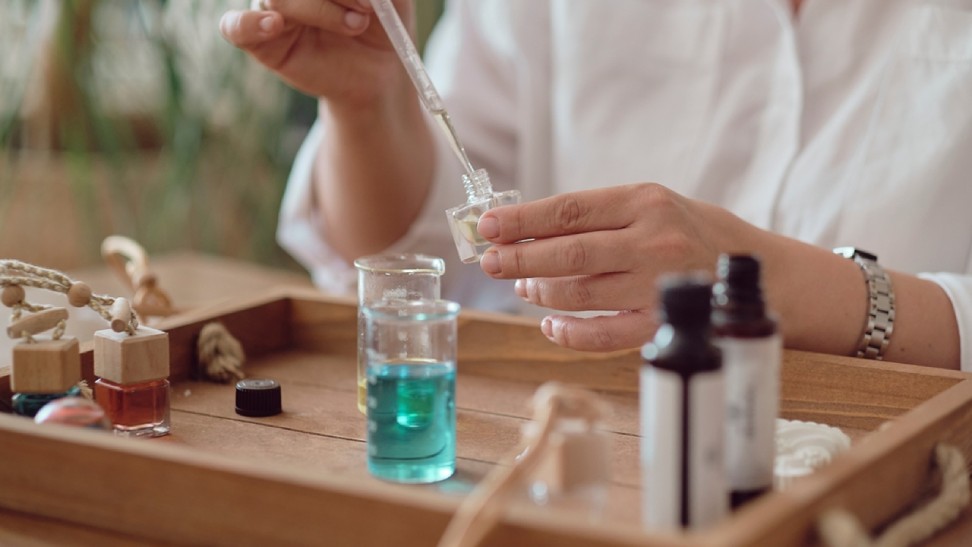Max66, Arsgroup777, ARS Group Exchange: Perfumery dates back to ancient civilizations where aromatic substances were used in rituals, ceremonies, and daily life. The Egyptians were pioneers in the art of perfumery, using fragrant oils and balms for religious purposes and personal adornment. They believed that perfumes had magical properties and played a significant role in their spiritual practices.
The Greeks and Romans also embraced perfumes, incorporating scented oils into their bathing rituals and using them as status symbols. They often associated different fragrances with specific deities and believed in the power of perfumes to ward off evil spirits. Perfumery continued to evolve through the Middle Ages and the Renaissance, with the art of perfume making becoming more refined and sophisticated.
The Role of Chemistry in Perfume Making
Chemistry plays a crucial role in every aspect of perfume making. From selecting the right combination of aromatic compounds to understanding the chemical reactions that occur during the blending process, chemists are at the forefront of creating unique and appealing fragrances. By studying the chemical composition of natural and synthetic ingredients, chemists can manipulate the scent profile of a perfume to achieve the desired aroma.
In addition to scent development, chemistry also influences the longevity and stability of perfumes. Through the use of fixatives and solvents, chemists can adjust the evaporation rates of different fragrance components, ensuring that the perfume lasts on the skin for an optimal amount of time. Furthermore, the study of chemical interactions between various ingredients helps perfumers create harmonious blends that are both complex and well-balanced.
Understanding Essential Oils and Aromatic Compounds
Ars247, Wazeerexch, Peachexch: Aromatic compounds are the building blocks of essential oils, providing the distinctive scents that we associate with various plants and flowers. These compounds are volatile and can easily evaporate into the air, releasing their fragrant aroma. Essential oils are concentrated extracts of these aromatic compounds, obtained through processes like steam distillation or solvent extraction.
Each essential oil contains a unique combination of aromatic compounds that give it its specific scent and therapeutic properties. For example, lavender essential oil is known for its calming aroma due to its high concentration of linalool and linalyl acetate, while peppermint oil is valued for its invigorating scent from menthol and menthone. Understanding the chemistry behind these aromatic compounds is essential for creating blends that harmonize well and evoke desired emotions or benefits.
� Aromatic compounds are volatile and easily evaporate into the air
� Essential oils are concentrated extracts of aromatic compounds obtained through processes like steam distillation or solvent extraction
� Each essential oil contains a unique combination of aromatic compounds that give it its specific scent and therapeutic properties
� Lavender essential oil is known for its calming aroma due to its high concentration of linalool and linalyl acetate
� Peppermint oil is valued for its invigorating scent from menthol and menthone
� Understanding the chemistry behind aromatic compounds is essential for creating blends that evoke desired emotions or benefits
What is the history of perfumery?
Perfumery dates back thousands of years, with ancient civilizations like the Egyptians, Greeks, and Romans using aromatic substances for religious rituals, personal hygiene, and medicinal purposes.
How does chemistry play a role in perfume making?
Chemistry is essential in perfume making as it helps perfumers understand the chemical composition of essential oils and aromatic compounds, allowing them to create unique and long-lasting scents.
What are essential oils?
Essential oils are natural oils extracted from plants through processes like steam distillation or cold pressing. They contain the essence of the plant’s fragrance and are used in perfumery and aromatherapy.
What are aromatic compounds?
Aromatic compounds are organic molecules that have a pleasant or distinctive smell. They are often used in perfumery to add depth and complexity to a fragrance.
How do essential oils and aromatic compounds interact in perfumes?
Essential oils and aromatic compounds work together to create the overall scent profile of a perfume. The combination of different oils and compounds determines the fragrance’s notes, from top notes that are immediately noticeable to base notes that linger over time.
Are essential oils safe to use?
While essential oils are natural, they can be potent and should be used with caution. It’s important to dilute essential oils properly and perform a patch test before using them on the skin. Consult a healthcare professional if you have any concerns about using essential oils.
Must Read :

